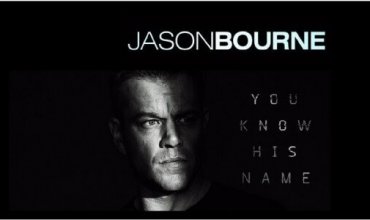Alias Grace is based on the true story of Grace Marks, a poor Irish immigrant, who becomes a young domestic servant after she moves with her family to Canada. In 1843, Grace Marks (Sarah Gadon) was convicted, along with stable hand James McDermott (Kerr Logan), of the brutal murders of their employer Thomas Kinnear (Paul Gross) and his housekeeper Nancy Montgomery (Anna Paquin). James was hanged, and Grace, spared the hangman’s noose, was sentenced to life imprisonment. Grace quickly became a tabloid sensation, a ‘celebrated murderess’, and one of the most notorious women in Canada in the early 1800’s. The series follows Grace, fifteen years into her life sentence, as she retells the story that leads up to the murders to Dr Jordan (Edward Holcroft), who attempts to determine whether she willingly carried out the murders or was simply an accessory to the crimes.
Alias Grace is based on the novel of historical fiction by Margaret Atwood. The book was first published in 1996, and has since won the Canadian Giller Prize and was shortlisted for the Booker Prize. This is the third of Atwood’s works that has been adapted for the screen, following the success of The Handmaid’s Tale and Wandering Wenda.
The story of Grace Marks, which at first appears as a straight forward ‘guilty or innocent’ verdict, quickly unravels into a complexly gripping tale. At times, the story frays off into possibilities, highlighting the multiplicities of truth surrounding such an event; the media’s salacious version of events challenges that of the witnesses, that which the lawyers tell her to believe, and that which the professionals tell her she did. The series is psychologically thrilling, delving into the nature of memory, superstition and the human psyche. Snippets of the past and contradicting stories of the murder give the audience an insight in Grace’s fragile mental state, as she struggles to come to terms with what she may or may not have done.
“…guilt comes to you not from the things you’ve done, but from the things that others have done for you.”
The episodes end in oddly anticlimactic moments, unlike many other streaming shows, which means one is less inclined to binge episode after episode. Having said that, the story itself is enthralling enough to make the viewer want to get to the truth of the murders. Unfortunately, the series, which spans across six episodes of about 45 mins each, spends a long time setting up the story and building the tension, only to rush towards a resolution that feels empty and farcical. However, in my view, the series is engaging enough to be forgiven for its unsatisfying anticlimax.
The narrating voice of Grace, who speaks in second person to Dr Jordan throughout, often conflicts with Grace narrating her past. In a way, it is clever how both voice and thought become intermingled, as Grace herself becomes so unsure of her own truth. However, it at times makes the retold story feel like a flashback within a flashback – often considered a cardinal sin of literature. Whether or not it is effective is for the individual viewer to decide.
“Men such as him do not have to clean up the messes they make, but we have to clean up our own messes, and theirs into the bargain. In that way they are like children, they do not have to think ahead, or worry about the consequences of what they do.”
Quick-talking and earnest, albeit flighty and prone to fainting and amnesiac spells, Grace is somewhat mesmerising as she retells her story. The series centres around the atrocities and oppression imposed on the women by the men around and above them. At its most depressing, the series sheds a light on the intimate struggles of women in the early 1800’s in countries such as Canada and Ireland. At its best, the series is a tale of dignity and quiet perseverance in the face of adversity.
I rate this series 7/10.
Alias Grace launches on Netflix November 3rd.


